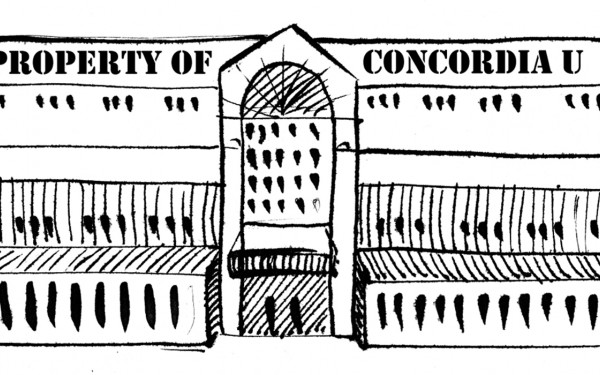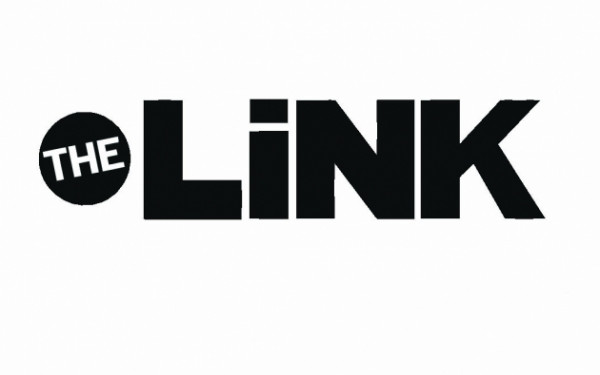Passing the Buck
Con U Inc. Author Opposes Student Centre Project
What started as a talk about the corporatization of Concordia turned into a debate about the controversial upcoming Student Centre referendum, as it was revealed for the first time that the Centre would be located in the Faubourg building.
The revelation came during the question period after a talk by author, activist and former Concordia student David Bernans. Concordia Student Union councillor Lex Gill responded to a question about the rumoured location of the Student Centre by addressing those present directly.
“I know I’m fucking myself over profoundly. For the last year and a half at least, I’ve personally known that the decision was made that it was the Faubourg,” said Gill. “Everyone was told to keep their mouths shut for the reason that [the price] will go up if the owner finds out. It’s total nonsense, and it’s really interesting that students are being told that it’s not [the Faubourg].”
The presentation was organized by Free Education Montreal, an organization that advocates against the privatization of education. Erik Chevrier, who is a member of the group, said he was glad that the issue was brought up.
“It should be discussed more than it really is,” he said. “I think there’s a lot left out of the discussion about student space.”
Bernans spoke about the Student Centre earlier in the evening, observing that there seemed to be a shady relationship between the school and real estate developer Jonathan Wener. Bernans said that from what he knew, the Student Centre seemed like “a bad idea.”
“It is a way for the school to [unload] the cost of student space onto students,” he said. “The clubs and offices and stuff that students have now, you are going to have to pay for it, and you won’t get anything new out of the deal. Plus, the administration will still have authority over security matters, so you will have the same constraints.”
Aside from the Student Centre, Bernans touched on a wide variety of topics affecting Concordia students, ranging from exclusivity contracts to student space. He noted that many of these issues were around at the time he published his book ConU Inc., almost a decade ago, and remain hidden from students.
“What I wanted to do [with ConU Inc.] was move beyond the visible tip of the iceberg that students and the broader Concordia community see as a representation of corporations at Concordia,” he said. “The tip of the iceberg is just what you see, but beneath the water is this huge, unseen thing that will destroy your ship of public education. The tip is exclusivity agreements [with] Pepsi and Zoom Media. What’s underneath are the research contracts, the donation agreements, Concordia’s old investments and private corporations.”
The cyclical nature of these issues is part of the reasons that Free Education Montreal invited Bernans to speak.
“I think the same things that went on a long time ago are occurring now,” said Chevrier. “It’s the same issues that keep on popping back up.”
This article originally appeared in Volume 31, Issue 15, published November 23, 2010.



1_600_375_90_s_c1.jpg)
